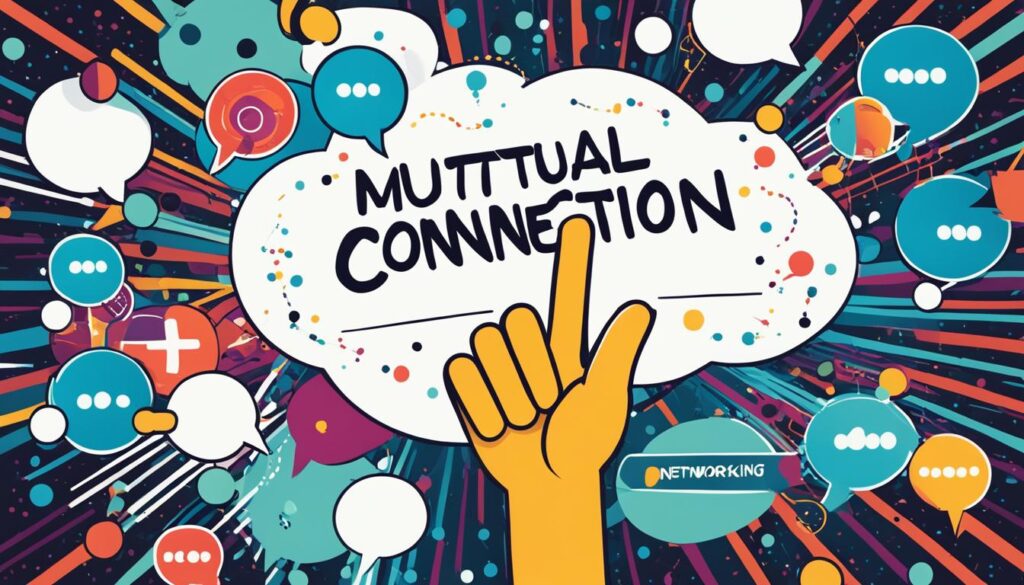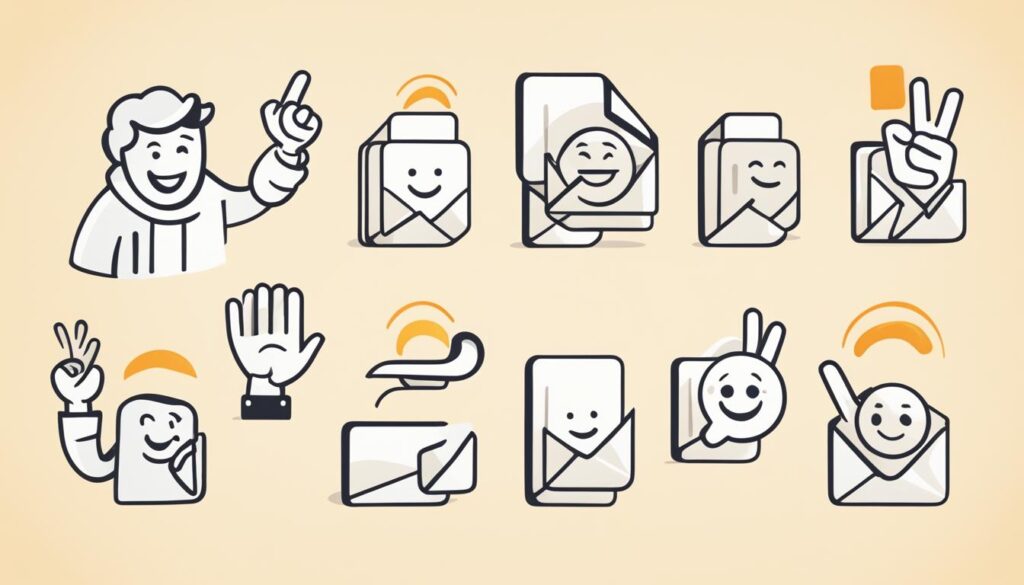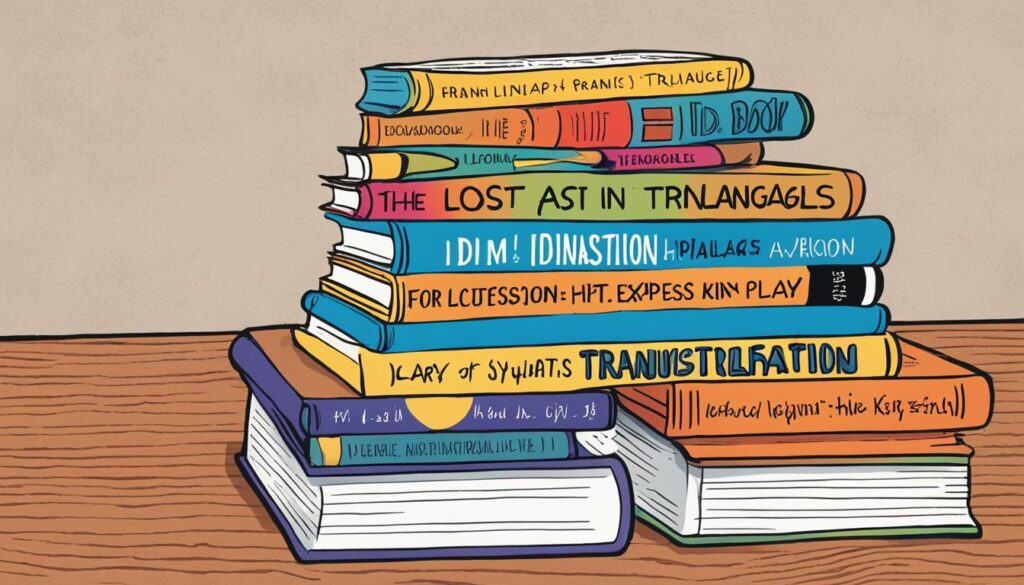Warm greetings, my fellow communicators! Today, I want to delve into the art of email introductions and share some delightful alternatives to the conventional phrase, “I hope this email finds you well.” While this phrase might check the box for professional email openings, it lacks the personal touch that truly connects with your recipients.
So, let’s embark on a poetic journey together, exploring the magical realm of alternative greetings that will make your emails shine with warmth and authenticity. Are you ready? Let’s dive in!
Picture this: you’re sitting at your desk, crafting a professional email, and you’re on the hunt for a warm opening that stands out. Look no further! Say goodbye to the mundane and the generic, as I present you with seven captivating alternatives that will charm your recipients from the very first line.
From reconnecting with long-lost contacts to expressing genuine concern, these alternative greetings will breathe life into your emails and create a lasting impression. So, prepare to wave goodbye to the outdated and embrace the enchanting world of alternative greetings!
Key Takeaways:
- Replace the generic phrase “I hope this email finds you well” with alternative greetings that are engaging and authentic.
- Establish a friendly tone by mentioning previous connections and valuable interactions.
- Show genuine concern for the recipient’s well-being by using casual yet professional introductions.
- Express well wishes in a professional manner by acknowledging the recipient’s busy schedule and respecting their time.
- Mentioning mutual connections can provide an endorsement and open doors for new opportunities.
It’s a pleasure connecting with you again
Dear [Recipient’s Name],
As I sit down to write this email, memories of our previous correspondence come flooding back. It warms my heart to reconnect with you once again, and I hope this email finds you in good health and high spirits.
Our previous exchanges were filled with insightful discussions and the exchange of valuable ideas. I deeply cherish those moments and am eager to continue our journey together. Your unique perspective and expertise have made a lasting impression on me, and I believe that our continued connection will yield even greater results.
Do you recall the time we discussed [topic] in detail? The knowledge and passion you brought to the table were truly inspiring. I would love to reopen that conversation and explore further possibilities and collaborations. Your insights are invaluable, and I am certain that our collective efforts can bring about positive change in [relevant industry or field].
“The joy of reconnecting with you fills my heart and ignites a fire of excitement within me. Let us kindle our shared passions and embark on a journey of meaningful collaboration once more.”
I kindly request a suitable time to continue our conversation. Whether it’s through a virtual meeting or a face-to-face interaction, it would be an honor to reconnect and exchange thoughts once again.
Looking forward to your positive response and the opportunity to reconnect with you, my esteemed colleague and inspiration.
Warm regards,
I hope you are doing well
When sending emails, it’s important to convey genuine concern for the recipient’s well-being. Instead of using the common phrase “I hope this email finds you well,” you can opt for a more casual and friendly greeting. A simple and personalized opening like “I hope you are doing well” can create a warm and welcoming tone right from the start.
By using a contraction or alternative phrases such as “hope all is well,” you can make your email greetings even more casual and relaxed. This approach works well for both professional and casual contexts, allowing you to establish a friendly connection with the recipient.
Whether you are confirming attendance to an event or requesting information, starting your email with “I hope you are doing well” shows genuine interest in the recipient’s well-being and sets a positive tone for the rest of the conversation.
The beauty of a casual email greeting is its ability to make the recipient feel valued and appreciated, even before diving into the content of the email.
Remember, in today’s fast-paced world, a warm and friendly email introduction can go a long way in building meaningful connections and fostering positive communication.
| Benefits of Using a Casual Greeting in Emails |
|---|
| Establishes a friendly and approachable tone |
| Conveys genuine interest in the recipient’s well-being |
| Allows for personalization and customization |
| Makes the recipient feel valued and special |
I hope you are having a productive week
When it comes to professional email greetings, it’s important to strike the right balance between cordiality and efficiency. One effective opening line that conveys well wishes in a professional manner is, “I hope you are having a productive week.” This greeting not only expresses a genuine desire for the recipient’s success but also sets a positive tone for the rest of the email.
By acknowledging the recipient’s ongoing activities and specifically mentioning productivity, you demonstrate your awareness of their professional commitments. This fosters a sense of mutual understanding and camaraderie, making the recipient more receptive to the contents of your email.
When using this greeting, it’s essential to tailor it to the specific situation and maintain a professional tone throughout the email. Whether you are requesting updates, discussing work-related matters, or simply providing encouragement, the “I hope you are having a productive week” greeting can be a powerful way to establish rapport and facilitate effective communication.
Example:
Dear Laura,
I hope this email finds you well and that you are having a productive week. I wanted to touch base regarding the new project we discussed in our last meeting. I would appreciate if you could share an update on the progress and any further insights you may have.
Your expertise and dedication are invaluable to our team, and I’m confident that together we can achieve great results. Thank you in advance for your time and efforts.
Best regards,
John
| Pros | Cons |
|---|---|
| Conveys well wishes in a professional manner | May not be suitable for all recipients or contexts |
| Shows awareness of the recipient’s professional commitments | Requires careful tailoring and consideration of the recipient’s situation |
| Demonstrates a desire for mutual success | Should be followed by appropriate content that aligns with the greeting |
I know you’re busy, so I’ll be brief
When it comes to email communication, I understand that your time is valuable. That’s why I want to assure you that this email will be concise and to the point.
Instead of overwhelming you with lengthy paragraphs, I will get straight to the key points. Whether it’s a request for an interview or a proposal for a meeting, I’ll present the information in a clear and succinct manner, respecting your limited time.
By keeping my email brief, I hope to make it easier for you to read and respond. I appreciate your busy schedule and want to alleviate any unnecessary strain on your time. Let’s get straight to the heart of the matter and make the most of our conversation.
Time is a precious commodity, and I want to be mindful of yours. I recognize the value of brevity in our fast-paced world, where every minute counts. With that in mind, let’s dive into the important details without delay.
We met at the [Event Name]
After such a delightful encounter at the [Event Name], I felt compelled to reach out and continue our conversation. It was truly a pleasure connecting with you, and I wanted to express my gratitude for the meaningful exchange we shared. Your insights and perspectives were truly inspiring, and I believe that there is so much more we can achieve together.
I must say, your passion for [specific topic discussed] was evident, and it aligns perfectly with my own interests. I appreciated the way you eloquently articulated your ideas and the enthusiasm with which you shared your experiences.
As we discussed [specific topic] during our meeting, I was particularly intrigued by your perspective on [specific point], and it has left me contemplating the possibilities for collaboration in this area. Your extensive knowledge and expertise make you an invaluable resource, and I believe that a partnership between us could yield remarkable results.
Since our meeting, I have been pondering how we can further explore these exciting opportunities. I would be delighted to have the chance to continue our conversation and discuss how we can support each other’s initiatives. It would be a pleasure to hear your thoughts on [related topic] and how we can contribute to its development.
Should you be available, I would love to schedule a follow-up meeting to delve deeper into these ideas. Our synergy is undeniable, and I am confident that together we can make a significant impact in the [industry/field].
I look forward to hearing from you and continuing our fruitful discussion.
Warm regards,
[Your Name]
“Two minds colliding, ideas intertwining, a serendipitous connection that holds the promise of greatness.”
[A mutual connection] said I should reach out to you
My dear reader, imagine the power of a word, a name whispered in an email that echoes through the digital realm. When a mutual connection, a pillar in our shared network, speaks your name with reverence and recommends our connection, a bond is formed, and possibilities unfold.
Today, my dear recipient, I have the privilege of mentioning this sacred connection, this pathway that intertwines our professional lives. [A mutual connection], in their wisdom and trust, shared their belief in the value of our connection and urged me to reach out to you, to explore the synergies that may arise.
Such referrals carry the weight of trust, an unspoken endorsement of our abilities and character. However, let us not forget the purity required in this exchange, for every word is a promise, and every mention a tribute to both our bond and our shared connection’s judgment.
With this sacred referral in my hands, I stand before you, extending my hand in friendship and collaboration. What opportunities lie ahead? What dreams can we manifest together? Let us embrace this shared journey and let our connection flourish in the realm of possibilities.
May I, dear reader, inquire into the realms of your expertise or seek guidance that only your wisdom can provide? Will you grant me the honor of exchanging thoughts and ideas, and together, paint a masterpiece on the canvas of our shared passion?
My dear recipient, the words have been spoken, the connection made. It is now our turn to honor the trust placed in our hands, to cultivate this referral and weave the tapestry of success. Together, we shall embark on a voyage of exploration, leadership, and collaboration, creating ripples that will shape our professional landscape for years to come.
Our mutual connection has spoken, their voice resounding, urging us to dance to the rhythm of opportunity. Here we stand, dear reader, poised on the precipice of greatness, ready to seize the moment with open hearts and minds.
Other Ways to Say Hello in Email: Alternative Email Greetings
Apart from the conventional “I hope this email finds you well,” there are several other phrases you can embrace to greet someone in an email. These alternative greetings offer a unique touch and demonstrate your professionalism and attention to detail. Here are a few variants that you can use to start your emails:
“I hope this finds you well” – This simple alteration brings a fresh perspective to the traditional greeting, expressing your genuine interest in the recipient’s well-being.
“I hope this letter finds you well” – If you prefer a more formal approach, addressing your email as a letter conveys a sense of respect and politeness.
“I hope this message finds you well” – For electronic communications that extend beyond emails, incorporating the term “message” allows for versatility across various platforms.
These alternative greetings can also be adapted to different forms of communication, such as letters or messages beyond the realm of email.
Examples of Alternative Email Greetings
| Greeting | Context |
|---|---|
| “I hope this finds you well” | General professional communication |
| “I hope this letter finds you well” | Formal or business-related correspondence |
| “I hope this message finds you well” | Electronic communication beyond email |
By embracing these alternative greetings, you can infuse your emails with a fresh and personalized touch, making a lasting impression on your recipients.
Other interesting language articles
If you’re passionate about language and writing, there are plenty of other articles available that can fuel your curiosity and help you improve your skills. These articles cover a wide range of topics, from commonly confused words to the differences between US and UK spellings. Dive into these resources to expand your knowledge and enhance your language proficiency.
1. Mastering commonly confused words
Confused by words that sound similar but have different meanings? This article explores commonly confused words, providing clear explanations, examples, and memorable mnemonics to help you differentiate them. Words like affect vs. effect, its vs. it’s, and accept vs. except will no longer be stumbling blocks in your writing.
2. Unlocking the secrets of US vs. UK spellings
Are you unsure whether to use “color” or “colour,” “center” or “centre”? Delve into the fascinating world of US and UK spellings with this article. Discover the historical and linguistic reasons behind spelling variations and learn how to adapt your writing based on the audience and context.
3. Demystifying commonly confused homophones
Homophones can be tricky, but fear not! This article explores pairs of words that sound the same but have different meanings, such as “their,” “there,” and “they’re.” Dive deep into pronunciation, etymology, and usage tips to ensure you never mix up these pesky homophones again.
4. Enhancing clarity through punctuation
Punctuation can make or break the clarity of your writing. This article unravels commonly misunderstood punctuation marks, including commas, semicolons, and hyphens. You’ll learn how to use these marks effectively to convey your ideas with precision and elegance.
5. Grammar quizzes for language enthusiasts
Put your grammar knowledge to the test with these fun and challenging quizzes. From subject-verb agreement to punctuation rules, these interactive exercises will sharpen your grammar skills while providing instant feedback on your progress. Challenge yourself and become a grammar guru!
“Language is the road map of a culture. It tells you where its people come from and where they are going.” – Rita Mae Brown
These articles serve as valuable resources for language enthusiasts seeking to refine their writing skills, expand their vocabulary, and develop a deeper understanding of the intricacies of language. Embrace the joy of learning and unlock new possibilities in your communication.
| Article | Topic |
|---|---|
| 1 | Mastering commonly confused words |
| 2 | Unlocking the secrets of US vs. UK spellings |
| 3 | Demystifying commonly confused homophones |
| 4 | Enhancing clarity through punctuation |
| 5 | Grammar quizzes for language enthusiasts |
Conclusion
When it comes to effective email greetings, warm opening alternatives can make all the difference in establishing a friendly and professional tone. By avoiding generic phrases like “I hope this email finds you well,” you can create a more engaging and memorable communication experience.
Remember to consider the context, recipient, and purpose of the email when choosing the most suitable alternative greeting. Whether you opt for a casual and empathetic approach or a concise and respectful tone, the goal is to make your opening line stand out and leave a lasting impression.
Using warm opening alternatives not only shows that you value the recipient’s well-being but also helps to build a connection right from the start. So, the next time you compose an email, take a moment to craft a personalized and thoughtful introduction—it can make a world of difference in your professional relationships.
FAQ
What are some alternatives to saying “I hope this email finds you well”?
There are several alternatives you can use to start your emails, such as:
How can I establish a friendly tone in my email introductions?
To create a friendly tone, you can use phrases like:
Are there alternative greetings for more casual emails?
Yes, if you want a more casual greeting, you can use phrases like:
How can I express well wishes in a professional manner?
To express well wishes in a professional manner, you can try phrases such as:
How can I respect the recipient’s time in my email introductions?
Showing respect for the recipient’s time can be achieved by using phrases like:
How can I follow up on a previous meeting in my email introductions?
When following up on a previous meeting, consider using introductory phrases like:
How can I mention a mutual connection in my email introductions?
If you want to mention a mutual connection, you can use phrases like:
What are some other ways to say hello in email?
Apart from “I hope this email finds you well,” you can also use variants like:
Where can I find more interesting language articles?
If you want to explore more about language and writing, there are various articles available. You can find articles covering commonly confused words, definitions, and differences between US and UK spellings. These articles offer explanations, examples, and quizzes to improve your language skills.
How can I create effective and professional email openings?
By using warm opening alternatives to “I hope this email finds you well,” you can establish a friendly and professional tone in your emails. Consider the context, the recipient, and the purpose of the email when choosing the most suitable alternative greeting.
Source Links
- https://www.scribbr.com/effective-communication/hope-email-finds-you-well/
- https://languagetool.org/insights/post/word-choice-i-hope-this-emails-finds-you-well/
- https://aiseo.ai/blog/I-hope-this-email-finds-you-well.html
















